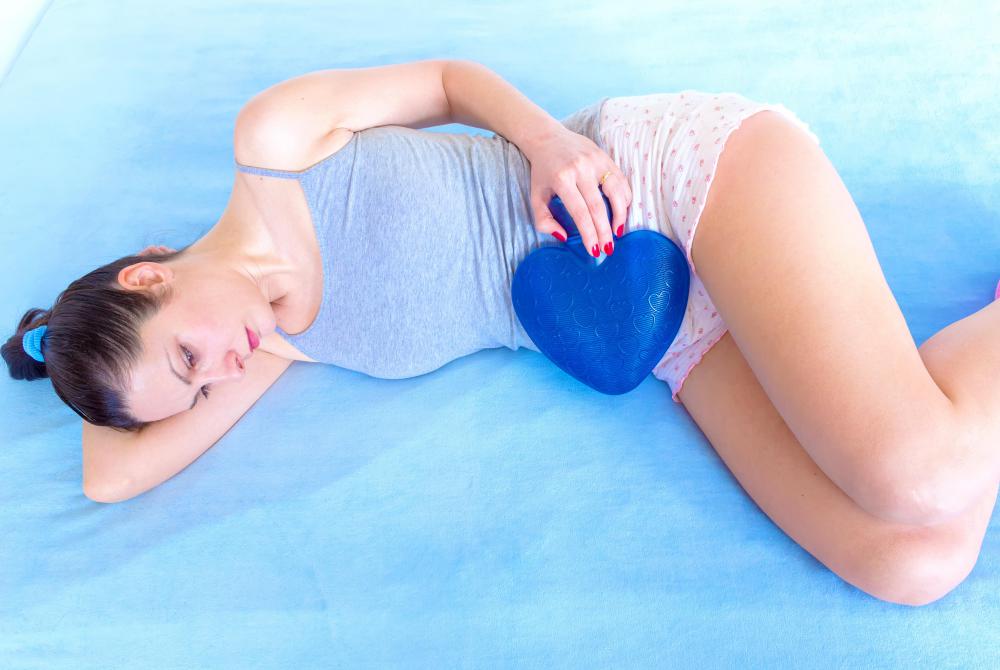At WiseGEEK, we're committed to delivering accurate, trustworthy information. Our expert-authored content is rigorously fact-checked and sourced from credible authorities. Discover how we uphold the highest standards in providing you with reliable knowledge.
What are the Signs of Kidney Stones in Women?
Kidney stones occur when hardened masses, often resembling pebbles, develop in one or both kidneys. Kidney stones in women can be a bit more difficult to diagnose than in men. This is due to the primary kidney stone symptom of abdominal pain often being confused with menstrual pain. An accurate diagnosis of kidney stones in women often relies upon the presence of other symptoms, such as fever or blood in the urine. Treatment is generally conservative and consists of increasing fluid intake and taking pain medications until the stones pass; surgical intervention to break up or remove the stones is only occasionally necessary.
The most common symptom of kidney stones in women is sudden intense pain. This pain generally begins in the back on the side where the affected kidney is located. Pain from a kidney stone often radiates toward the front of the abdomen and into the groin area. Due to the proximity to the female reproductive organs, this pain is often mistaken for menstrual-type problems. This confusion is even more common if the woman has ovarian cysts or a condition known as endometriosis, as the symptoms are often similar.

In addition to abdominal or back pain, other symptoms of kidney stones in women may include fever, nausea, vomiting, or blood in the urine. Any combination of these symptoms warrants a trip to the doctor. Simple laboratory tests such as blood or urine tests can frequently rule out other potential causes for the pain, such as an infection. An x-ray or ultrasound may also be ordered in an attempt to verify the presence of a stone.

Once kidney stones have been diagnosed, treatment may begin. The patient is typically sent home and advised to drink plenty of fluids, especially water. This will help to flush any toxins from the kidneys while helping to move the stone out of the body. If a urinary tract infection is also present, antibiotics may be prescribed.
Over-the-counter pain medications may be used to help control some of the pain associated with kidney stones in women. In many cases, this type of medication does not provide sufficient pain relief. If this is the case, a doctor may prescribe stronger medications to combat the pain. Anti-nausea medications are often prescribed as well to patients who are experiencing nausea or vomiting as a result of the kidney stones or as a side effect of the pain medications.
AS FEATURED ON:
AS FEATURED ON:

















Discussion Comments
My wife is suffering from kidney stones, which are causing severe pain in her lower abdomen, chills, fever and vomiting. The doctor has suggested several urine tests, including a urine culture. The kidney has been infected by stone and urinary tract infection. The doctor is treating her with antibiotics.
Can anyone suggest a simple way to drain the stone from the kidney, other than drinking plenty of water? What treatment may the doctor suggest next? Does she need to undergo any surgery? will this infection cause any damage to her kidney?
Post your comments